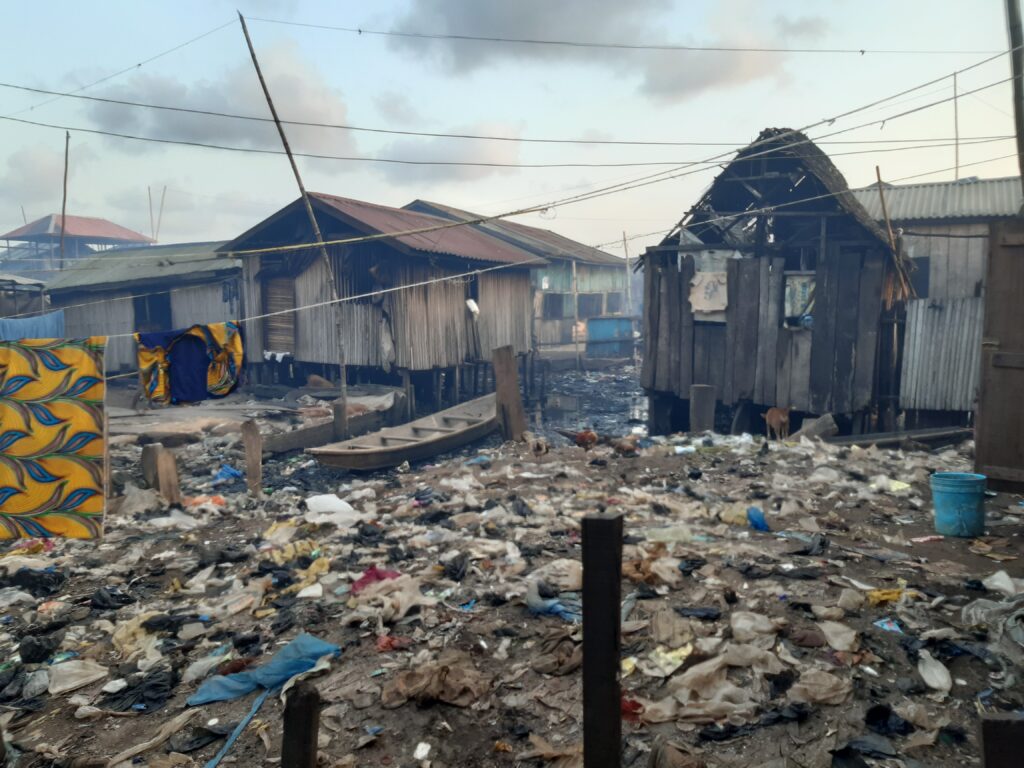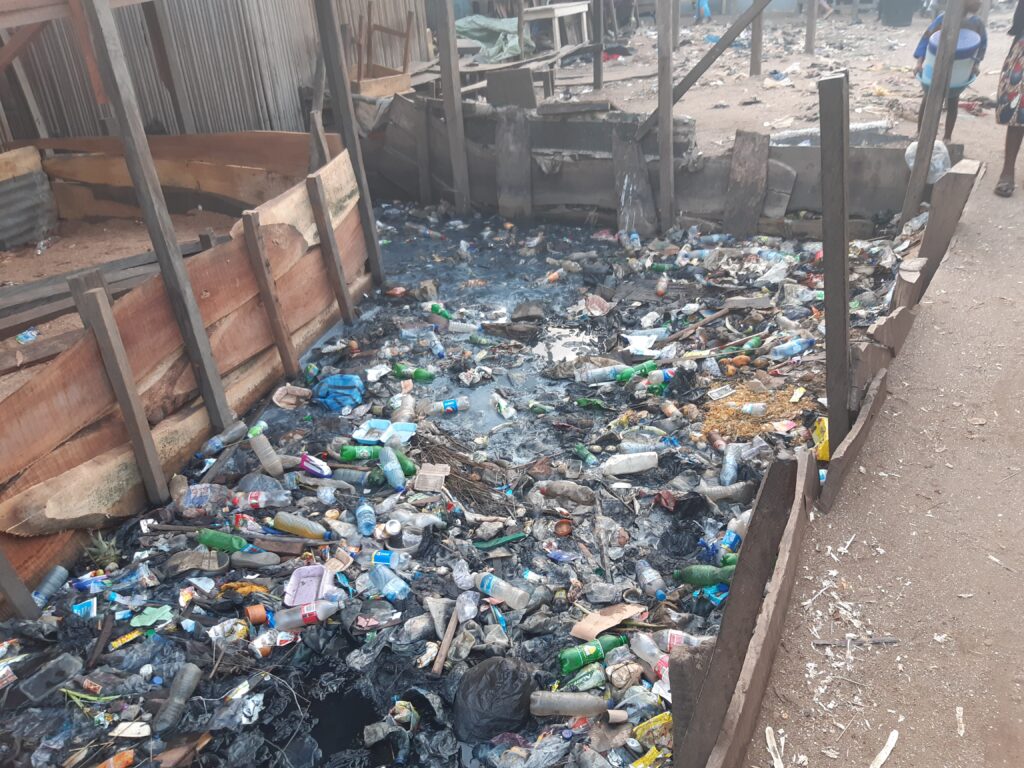““When you understand that your body returns to the fields, the soul of your lungs to the air and your blood to the rivers, you will realize that you belong to the earth and not that the earth belongs to you””
Waste generation in Nigeria has grown significantly during the last decades. This increase is explained mainly due to the rapid growth in the urban population and the new consumption habits in the cities. The more than 20 million inhabitants of the city of Lagos (2019) generated 13,000 tons of daily waste. Compared to other overage European cities, such as Madrid where the volume generated amounts to 4,000 tons per day, Lagos faces a battle for the accumulation of garbage that is currently losing.
However the rise in waste generation has not been accompanied by an improvement in collection, storage and disposal systems. The inefficiency of the management system is due to diverse factors like the absence of a legal framework that distributes the powers of the sector effectively, the concurrence of different agents with low skills and the short citizen commitment to keep the streets clean. The population has never assumed the problem as their own, attributing responsibility to the government. The majority of state governments in Nigeria allocate large items of their budgets to waste management, but they are still not enough to meet the financing needs of government agents, make the required payments to private operators involved in the sector or deal with new investments in technology, infrastructure and equipment.
LAWMA recognize last year (2018) only collected 27% of the total waste generated. This means 63% remain on the streets are eliminated by contaminating or uncontrolled techniques such as street burning or remain in the public spaces such as ditches accumulating and creating dangerous surroundings for health and the environment. For these reasons is not a surprise that in 1977, at the International Festival of Arts and Culture (FESTAC 77), Lagos was cataloged as “The Dirtiest Capital in the World“.
Of course, this statement was over 40 years ago, and many breakthroughs have occurred in Lagos since then. Today we do not believe that this statement is correct, but sometimes you have to be a bit sensationalist so that the real problems begin to be paid attention.
We work for a world to be inherited
#mondo4africa
“When you understand that your body returns to the fields, the soul of your lungs to the air and your blood to the rivers, you will realize that you belong to the earth and not that the earth belongs to you”
Waste generation in Nigeria has grown significantly during the last decades. This increase is explained mainly due to the rapid growth in the urban population and the new consumption habits in the cities. The more than 20 million inhabitants of the city of Lagos (2019) generated 13,000 tons of daily waste. Compared to other overage European cities, such as Madrid where the volume generated amounts to 4,000 tons per day, Lagos faces a battle for the accumulation of garbage that is currently losing.
However the rise in waste generation has not been accompanied by an improvement in collection, storage and disposal systems. The inefficiency of the management system is due to diverse factors like the absence of a legal framework that distributes the powers of the sector effectively, the concurrence of different agents with low skills and the short citizen commitment to keep the streets clean. The population has never assumed the problem as their own, attributing responsibility to the government. The majority of state governments in Nigeria allocate large items of their budgets to waste management, but they are still not enough to meet the financing needs of government agents, make the required payments to private operators involved in the sector or deal with new investments in technology, infrastructure and equipment.
LAWMA recognize last year (2018) only collected 27% of the total waste generated. This means 63% remain on the streets are eliminated by contaminating or uncontrolled techniques such as street burning or remain in the public spaces such as ditches accumulating and creating dangerous surroundings for health and the environment. For these reasons is not a surprise that in 1977, at the International Festival of Arts and Culture (FESTAC 77), Lagos was cataloged as “The Dirtiest Capital in the World“.
Of course, this statement was over 40 years ago, and many breakthroughs have occurred in Lagos since then. Today we do not believe that this statement is correct, but sometimes you have to be a bit sensationalist so that the real problems begin to be taken into account.
We work for a world to be inherited
#mondo4africa


If you want to collaborate, and improve the situation in many places on West Africa, checks our projects, join us a volunteer or support through one of our products.
The sale of our cleaning up t-shirts allows us to fund these activities and spread awareness in Africa and the world about the plastic crisis and the mismanagement of waste. We will share with you the information of the events and you could be participate on our journey to improve plastic crisis on Ghana.
MAKE POSSIBLE FUTURE EVENTS
The sale of our cleaning up t-shirts allows us to fund these activities and spread awareness in Africa and the world about plastic crisis.


